This is the fifth instalment in a series following my musical journey to the present day. If you're following along, thank you!
Previous Posts in the Series
My Musical Journey - Part 1
My Musical Journey - Part 2
My Musical Journey - Part 3
My Musical Journey - Part 4
Bluegrass FTW
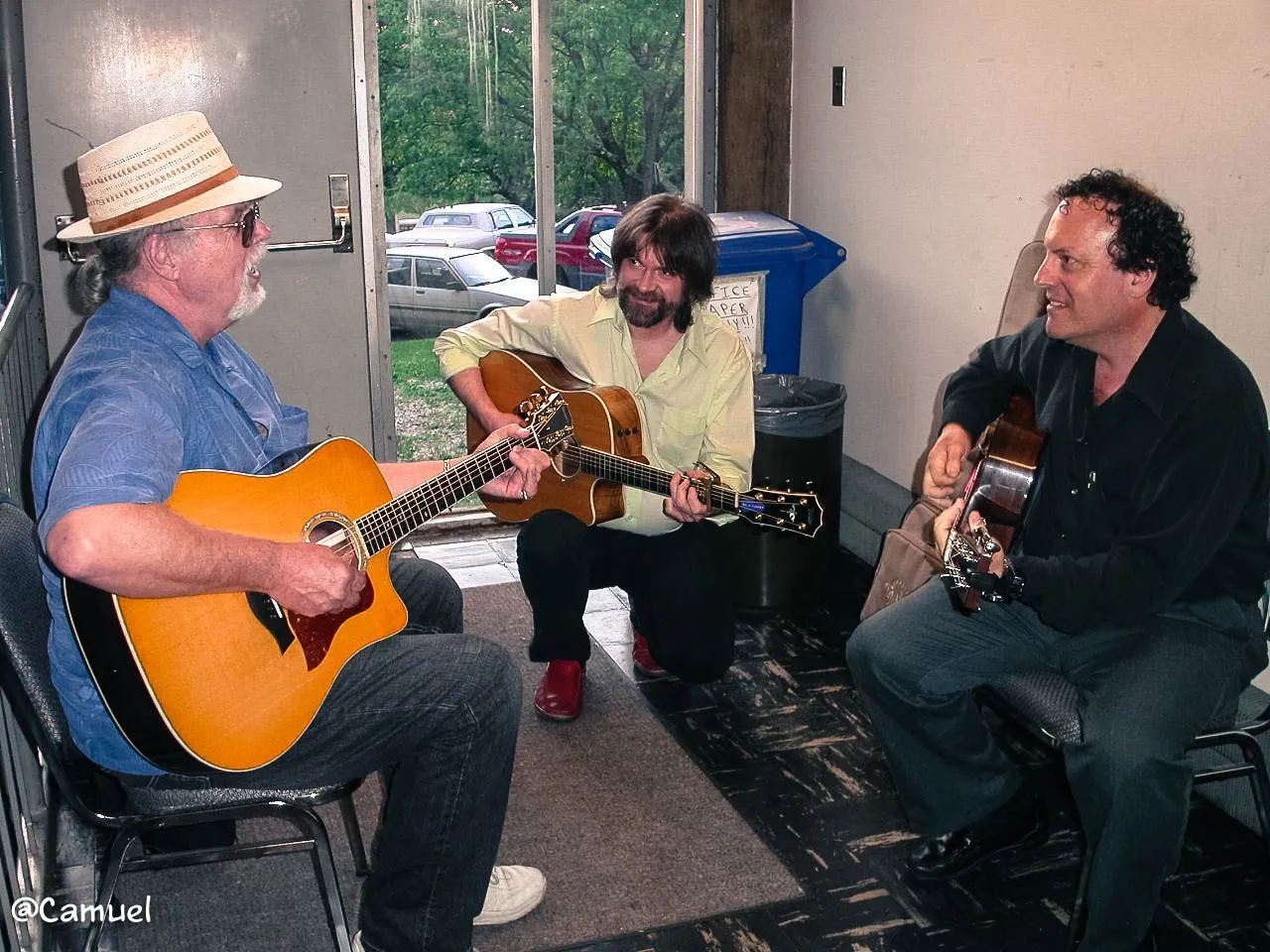
I spoke in part 4 about meeting Dave Skowron of Red Bear Trading at Little Brother’s jam in 2004 and the first time I heard bluegrass music. That changed my life in a very big way. Here's how...
Dave started Red Bear Trading, a company making guitar picks out of a material that is indiscernible from turtle shell. Turtle shell was, and I suppose still is, considered by some guitar pickers to be the quintessential material for guitar picks. It was so good that, in blind tests, nobody could really tell the difference with 100 per cent accuracy.
We got to talking about Steve Kaufman’s Acoustic Kamp. Dave had been a couple of times and told me that I should come to the next one, but there was no way I could afford TWO guitar trips to the USA in the same year. 'Are you crazy?'
But Dave had an idea.
At that time, he was selling his Red Bear picks to music stores wholesale, but only in the USA; he didn’t have a retailer in Europe. So he offered me the dealership, promising that I’d make enough money to fund my entire trip to Kaufman Kamp for both weeks.
‘What? Are you kidding me?’
'No, really, you will!'
'Alright then. Let's go for it!'
I set up a website when I got home to Luxembourg and started selling Red Bear picks. I put an ad in a UK guitar mag and the orders came flying in.
Ka-ching!
I saw pretty early on that I really was going to be able to fund my trip with pick money, so I booked the Kamp for both weeks and started getting excited.
Preparation
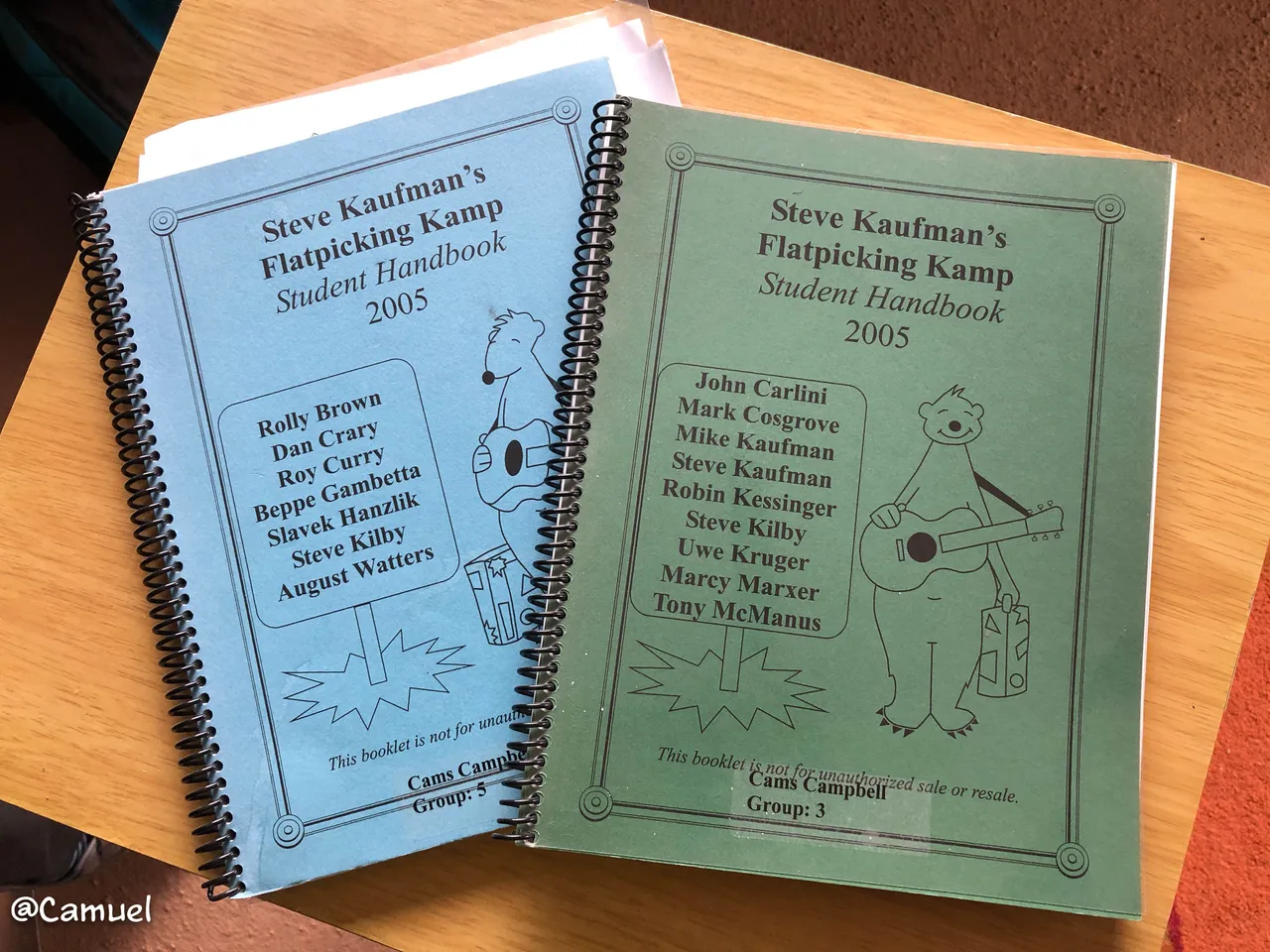
First things first though - preparation. ‘Just how does this flatpicking thing work then?’ I didn't really have much of a clue, and certainly didn't know any fiddle tunes. So I ordered Steve Kaufman’s 20 Bluegrass Guitar Solos that Every Parking Lot Picker Should Know, Vol. 1 and started practising. It's a fantastic learning resource - 20 standard fiddle tunes tabbed out for guitar with beginner, intermediate and advanced lessons and CDs of all the versions. I practised and practised and practised and had a really great time.
June rolled around and we were off…
Kamp
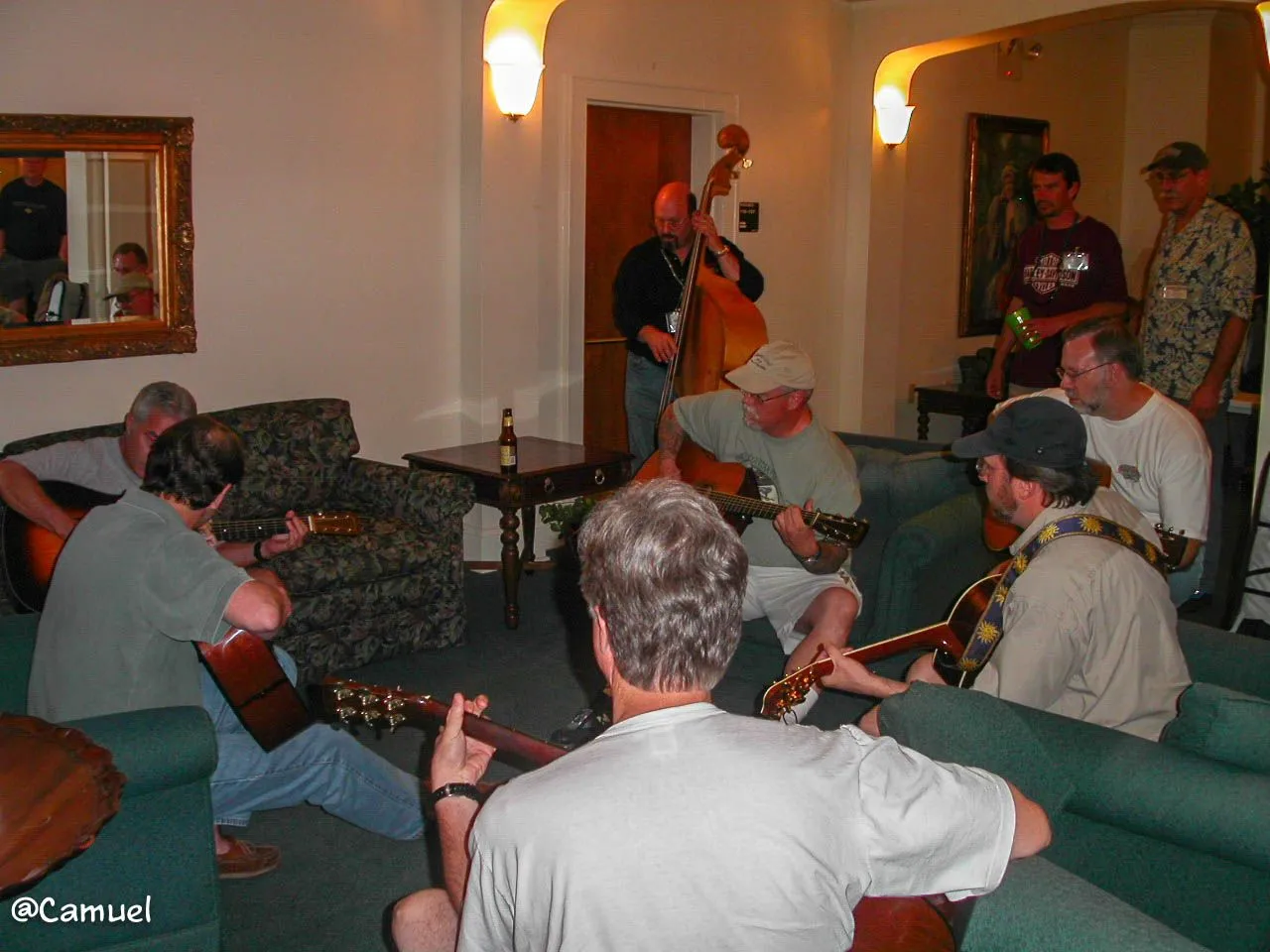
I got to Maryville College and hooked up with Dave. He’d put me down as a roommate and we had a joyful reunion.
The first thing was to head into town for pillows and towels – Dave knew from experience that the college pillows were awful – and beer, with a cooler on wheels to keep said beer at a nice temperature. Pillows and towels were $1.99 each from Target - bargain!
That first night we sat in the foyer of Carnegie Hall on the comfy sofas and watched as players and instructors rolled in, got their guitars out and started picking. There were loads of experienced kampers, so it was a reunion for them and we had a great time, chugging beers, catching up and picking, jam style. I knew straight away that I had found music heaven. I’m getting chills just remembering that feeling. I had never in my life had a music buzz that was anywhere close to this. Steve Kilby, one of the instructors arrived, got out his ‘burst Martin D18 GE and picked a few. His picking was effortless, clean and fast. Watching him, it looked like he was going real slow; he was so relaxed, fretting fingers barely leaving the fingerboard, but like a machine gun of notes. Such economy of motion. That’s one of my enduing memories - the first time I ever heard picking like that.
I realised on the Sunday night that learning beginner versions of tunes at level 1 pace wasn’t gonna let me pick with the Carnegie Hall guys, no way. But this was guitar heaven, right? There were pickers at all levels, so I just had to find my crowd.
Kamp Format
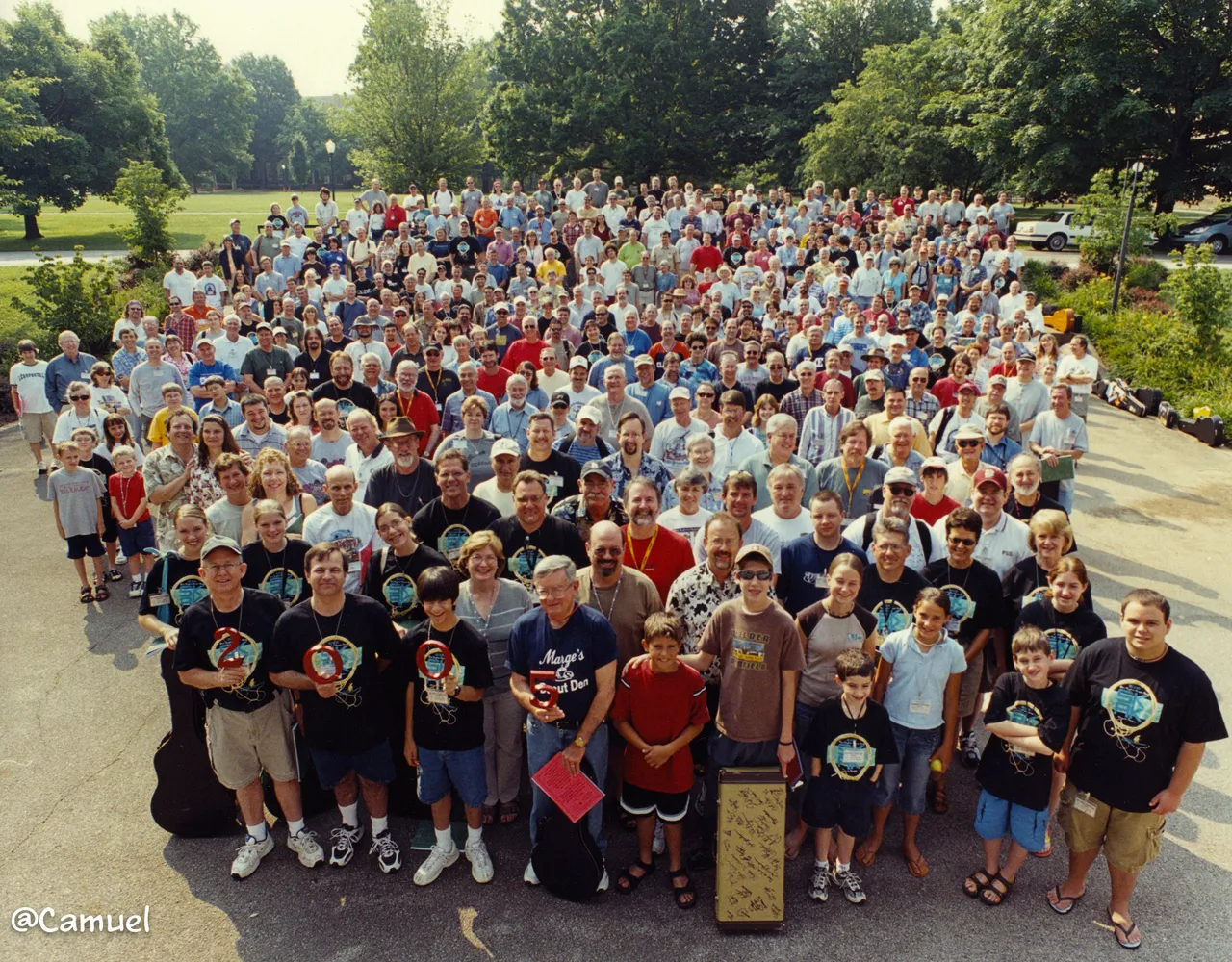
Monday morning was registration and Kamp photo. Steve gave us a talk about how Kamp worked and we were assigned to our classes. I’d signed up for beginner level flatpicking guitar, but there were also higher levels, as well as bass, mandolin, banjo, fiddle, dobro and singing.
Each morning there was a 45-minute slow jam outside the Kamp store after breakfast and before lessons started. This was a super way to pick through tunes together at a slow pace and get warmed up for lessons. There was another slow jam in the late afternoon after classes.
Lessons went through the day with a break for lunch and finished around 4. Between 4 and dinner, there were one of several focused panel discussions, masterclasses or orchestras. The focused panel discussions were varied and interesting, such as a Celtic jam session with Tony McManus and Robin Bullock, or learning to play by ear with Dan Crary. Masterclasses were an opportunity to play in front of one of the instructors and have your playing critiqued. I had some of the best instruction from Steve Kaufman himself.
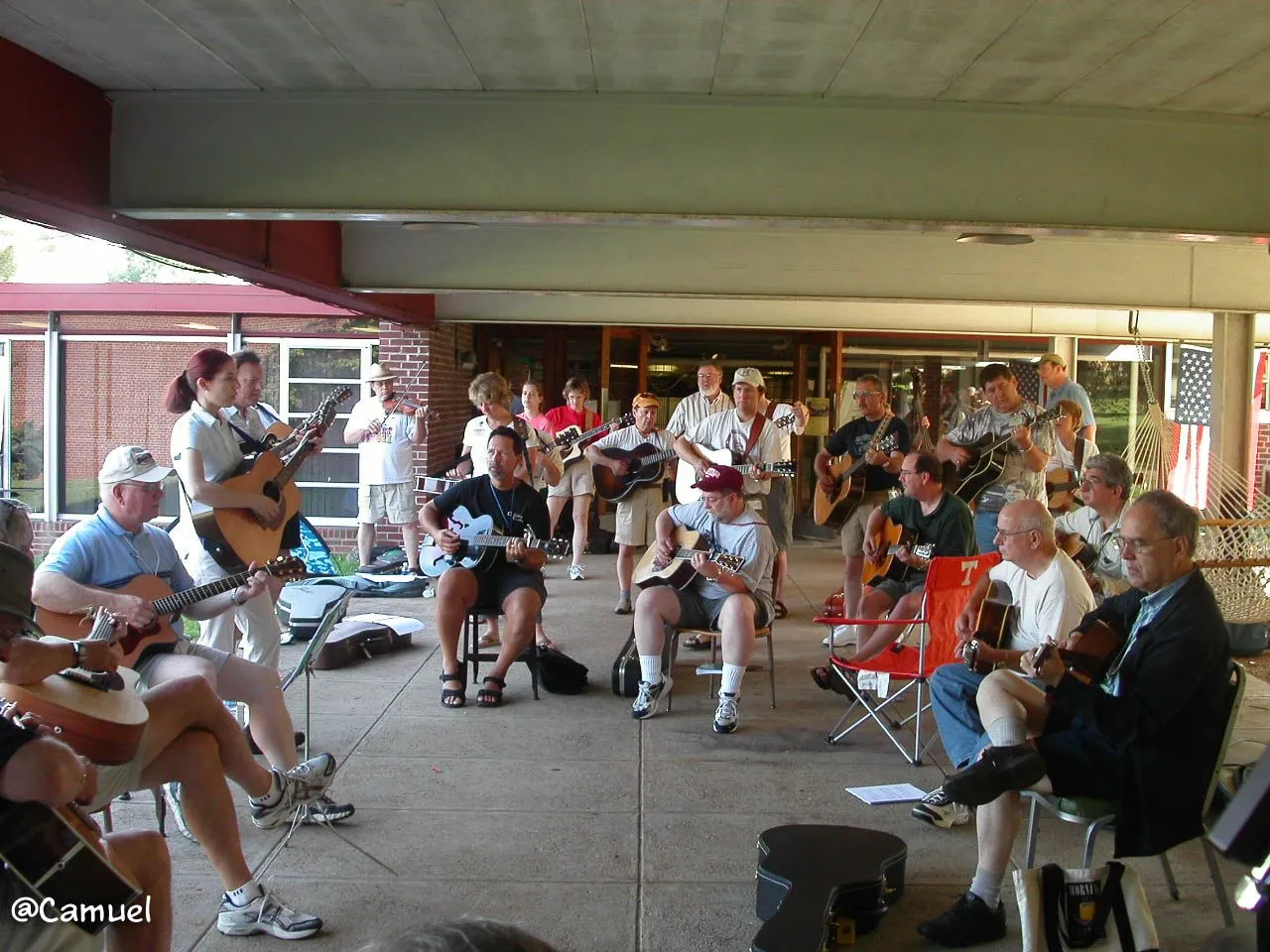
During week 1 there was a guitar orchestra run by Beppe Gambetta. Practice sessions were during the masterclass slot each day with the orchestra's playing the at the Saturday evening concert. It was a shame that I had to make such tough choices every day about masterclasses, focus panel discussions, orchestra or slow jam, but there were only so many hours in the day.
A couple of the class slots were taken up by class scrambles. This gave everyone a chance to visit a class outside of their own timetable, e.g. flatpickers could attend fingerstyle classes, guitar players could go to mandolin classes, etc. That was a great idea. Wednesday had a class scramble in the morning and a workshop in the afternoon with the bluegrass band Hiwassee Ridge (who also ran sound for the evening gigs impeccably). That offered up a chance to have a break and catch up on some sleep, some email or simply relax in a jam somewhere. During that afternoon of the second week, I joined a small circle outside the Kamp store where we were treated to a couple of tunes by Tony McManus. What a treat! On the first week, I spent that same time jamming with Rolly Brown!
There were a few classes on theory and chord substitution which I found really interesting. Rolly Brown explained it very well and, whilst it seemed somewhat overwhelming at first, he was only too happy to explain it further.
As with Rolly, all of the instructors were only to happy to sit down and talk to you outside the classroom and help you out with any queries. I asked John Carlini to explain minor keys to me outside the cookhouse and Tony McManus joined us midway through. If you want to know anything about any aspect of music theory, John Carlini’s your man. I still walked away feeling as if I’d asked Einstein to explain the laws of physics, but nevertheless, I’m sure I learned something, even if I'm not quite sure what it was!
Each evening there was a concert in the main auditorium with all the instructors' getting together and forming little bands. You could tell that they loved doing it. Kamp for them is a time to catch up and jam together. I can only imagine that it must feel like music heaven for them too, to get to jam with their pals and get paid. Imagine!
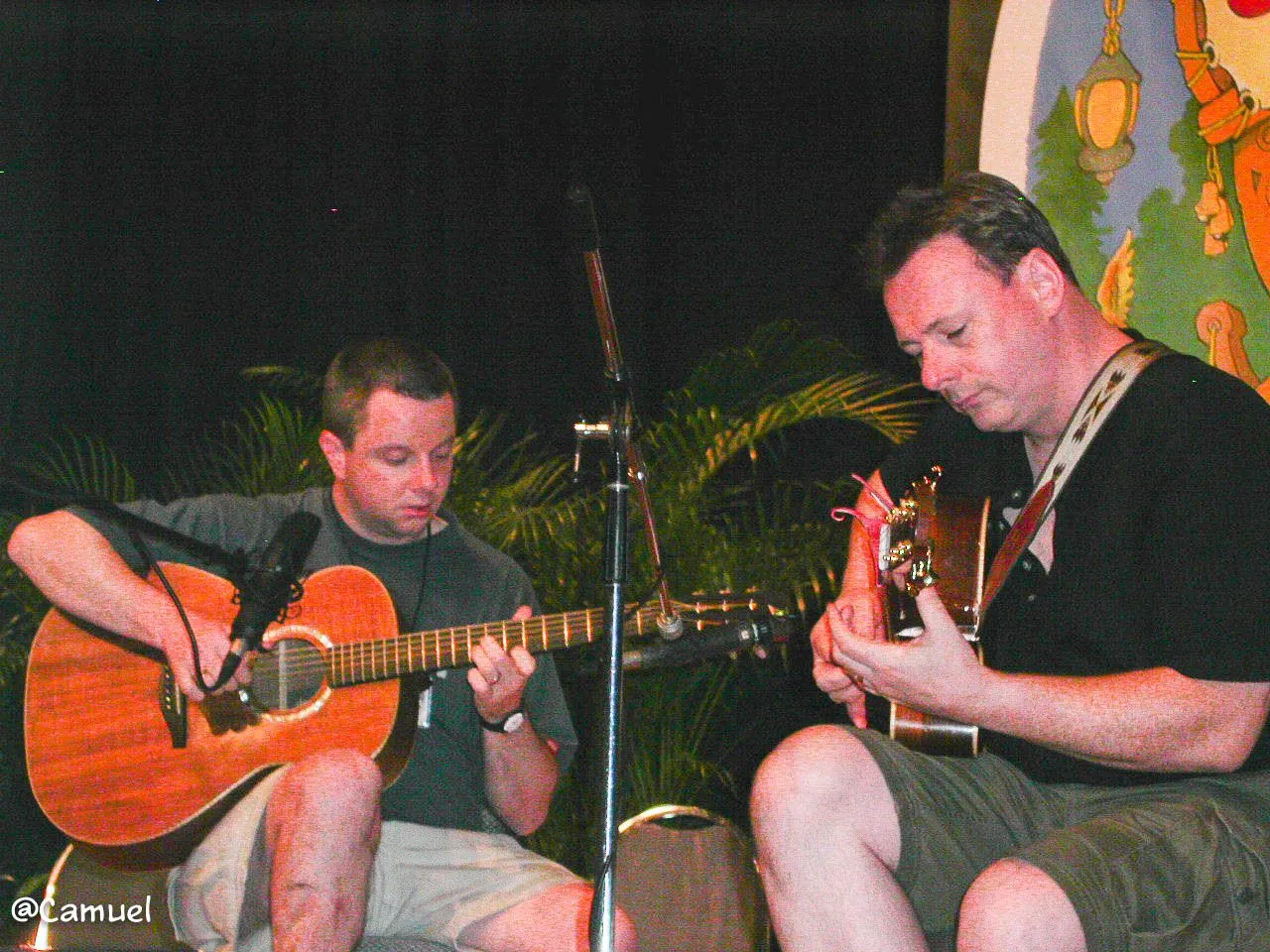
Before the concerts there was an open mic in the main auditorium. Students would sign up for a slot and then go and play either solo or form a band or, even better, play with an instructor. This was one of my biggest moments - I had Tony McManus join me for one of my slots and I played my adapted version of an arrangement of his. It was one of those moments. Unforgettable!
The main concerts were structured in such a way that each artist had a 20-minute slot with no encore. That meant the concerts were done by 10.30 and we could go and get some jamming done while we were feeling fired up.
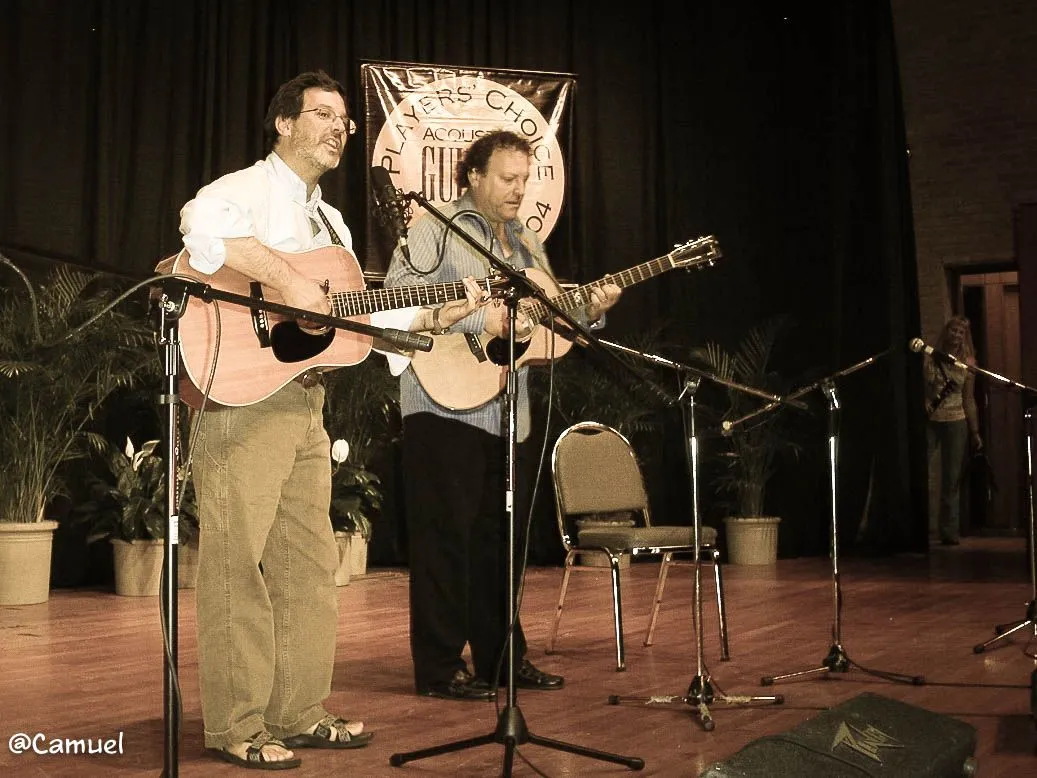
Every one of the concerts was amazing. One of the things I found about Kamp is that the outside world fades away and all my walls simply disappear. I was in that magical place of being open and vulnerable; it made the music so powerful that I was in tears at the concerts every night.
One of the standout performances was Jim Hurst and Missy Raines. I’d never seen an upright bass played like that in all my life, and the two of them went so well together. Likewise Stephen Bennet (guitar, harp guitar) and Bill Gurley (fiddle). Theirs was the first of many performances to receive a standing ovation. They did one tune called The Beautiful Sky that would move a grown man to tears, and indeed it did move this one!
After the concerts, there was an open mic in Isaac's, a little café. It ran from 11 to 1.00 and was a great opportunity to sit down and have a burger and listen to some great performances, or to use as a practice ground for performing at the open mic on the big stage.
The jams after the concerts were terrific and went on long into the night. And they were everywhere: in people’s rooms, in hall lobbies, out on the grass, in every corner of the campus. There were bluegrass jams, the ubiquitous fiddle tunes, and songs of all kinds.
Weekend
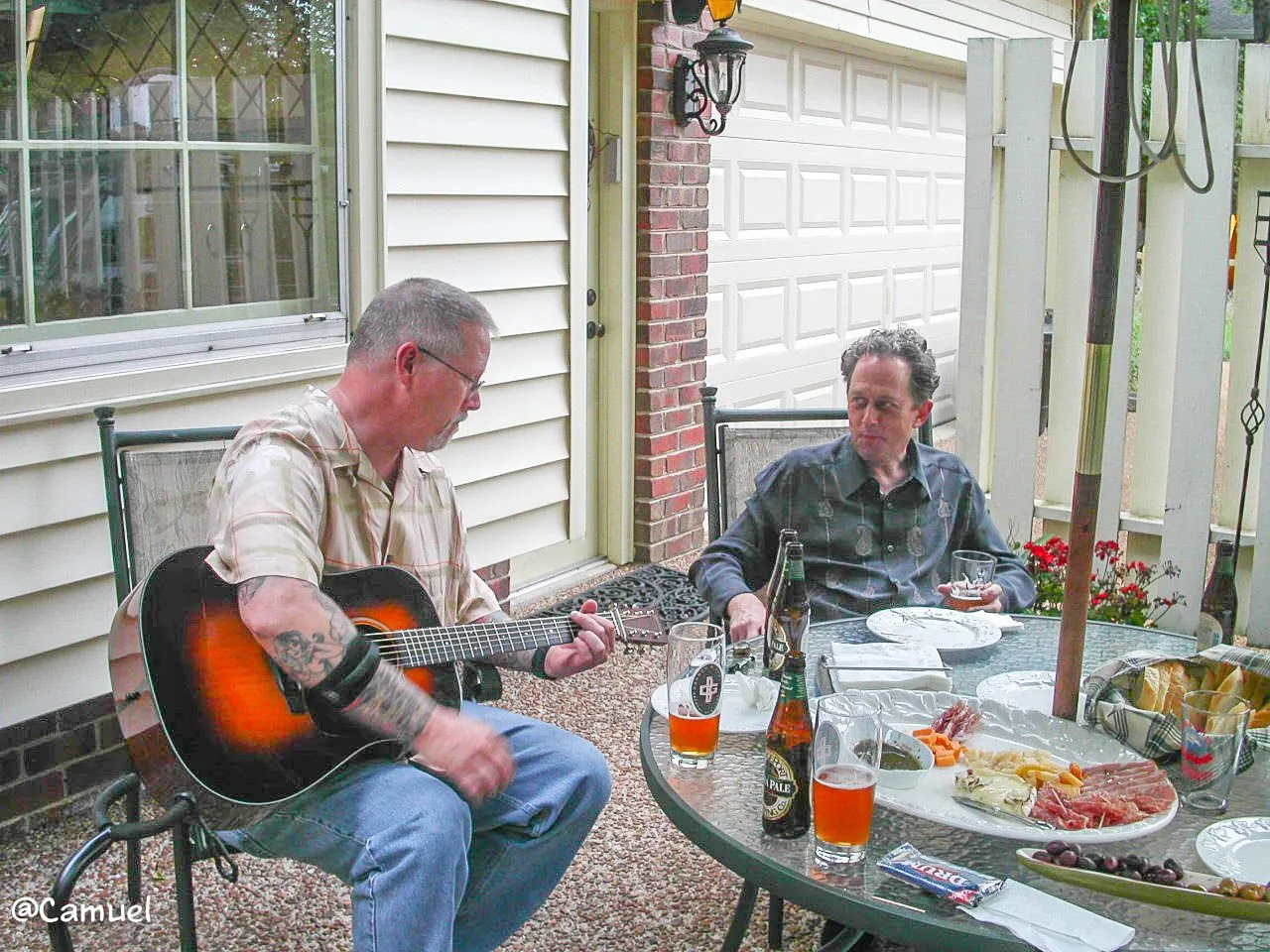
Most people signed up for either week 1 or week 2, but Dave and I were both signed up for both weeks. That gave us a weekend to spare. I'd met an awesome dude at Little Brother's Acoustic Jam in 2004 called Bill Warmoth. He was launching a music store in Franklin, Tennessee called Artisan Guitars, so we decided to take a trip to see him. Dave wanted to talk guitar picks, so we hired a car and made the road trip. It was a fantastic experience, driving through Tennessee with all the CDs we'd stocked up on at the Kamp store.
Back in 2004, I'd made the acquaintance of Joe Carpenter from Tennessee at a guitar gathering in the UK – the topic of my next post in the series! Joe's home town was, wait for it... yep, Franklin. So I got in touch and let him know I'd be in his town and got him an invitation round to Bill Warmoth's place. Joe and Bill had never met, so here was a guy from Scotland, introducing two locals from the same town. Crazy!
Final Thoughts
My Kamp experience changed my playing for good and I would dearly love to get the chance to go again with another 20 years of playing under my belt.
Since then Dave and I have remained good friends, although I haven't seen him again since. He stopped wholesaleing his picks, but I still use a Red Bear pick every day. I've been playing bluegrass music and fiddle tunes ever since, and spent the last three years playing in a local band. Bluegrass music got into my bloodstream and became a lifelong passion.
Yeehaw!